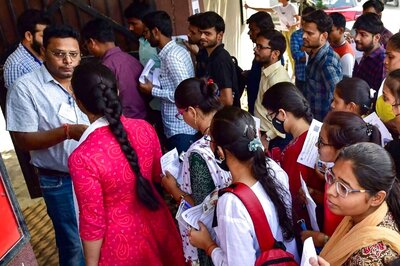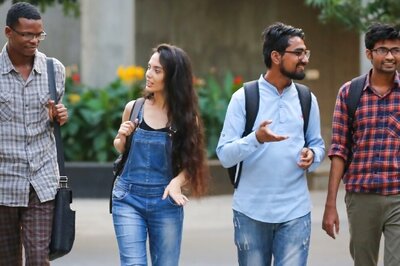
views
The Calcutta High Court has dismissed a writ petition moved by a Christian teacher against a school’s demand for mandatory Covid-19 vaccination. The teacher had refused to take shots of Covishield stating that the AstraZeneca vaccine, as documented in journals, was put to test on foetuses, which is against his religious beliefs.
The teacher also denied taking any other vaccine shot stating that there are no confirmed reports about their trials and, therefore, he cannot be forced to undergo vaccination. The court, however, held that his arguments for not being vaccinated are random logic. It noted that the petitioner did not place any confirmed medical data before it for forming an opinion that Covishield has been developed through trials, which offend the Christian faith.
“It would also not be out of place to point out that a writ court is not vested with the jurisdiction or the expertise to assess a large body of scientific evidence – even if produced – to draw a conclusion on the alleged un-Christian trials for developing a vaccine,” the high court said.
The court further said the petitioner failed to place any satisfactory explanation for his refusal of undergoing other vaccination available in the market. “The argument that the petitioner does not have sufficient data at his disposal with regard to Covaxin clinical trials is not a satisfactory answer for taking a favourable view of the petitioner’s alleged religious dilemma,” the HC held.
The teacher, through his writ petition, also sought a declaration that undergoing Covid vaccination is not mandatory when it is in conflict with a person’s religious beliefs. But the court stressed that the petitioner’s right to remain unvaccinated must be balanced with the right of the children and other teachers as well as staff of the school to be protected against Covid-19.
“The risk of exposure of children and staff of the school to an unvaccinated teacher cannot be ruled out,” it held.
The teacher also sought a mandamus commanding the respondent school to allow him to continue his work and release his salary with all arrears.
On this, the court observed that although the petitioner had moved the HC invoking its writ jurisdiction under Article 226 of the Constitution, he essentially sought a mandamus to the school to permit him to continue his job and disburse his salary. In this regard, the court held that only the reason that an institute imparts education is not sufficient for bringing all unaided and minority private schools and colleges under the cover of Article 226.
“The purely personal and pragmatic case for monetary relief fixed on lofty (and vexing) religious speculation cannot be sustained and that, too, against a private unaided school,” the court said.
Hence, agreeing with the argument put forth by the school counsel that the petition under Article 226 was not maintainable as the respondent school was a private body, the court dismissed it.
“The right sought to be enforced is purely of a private contractual character,” the court held.
Read all the Latest India News here




















Comments
0 comment